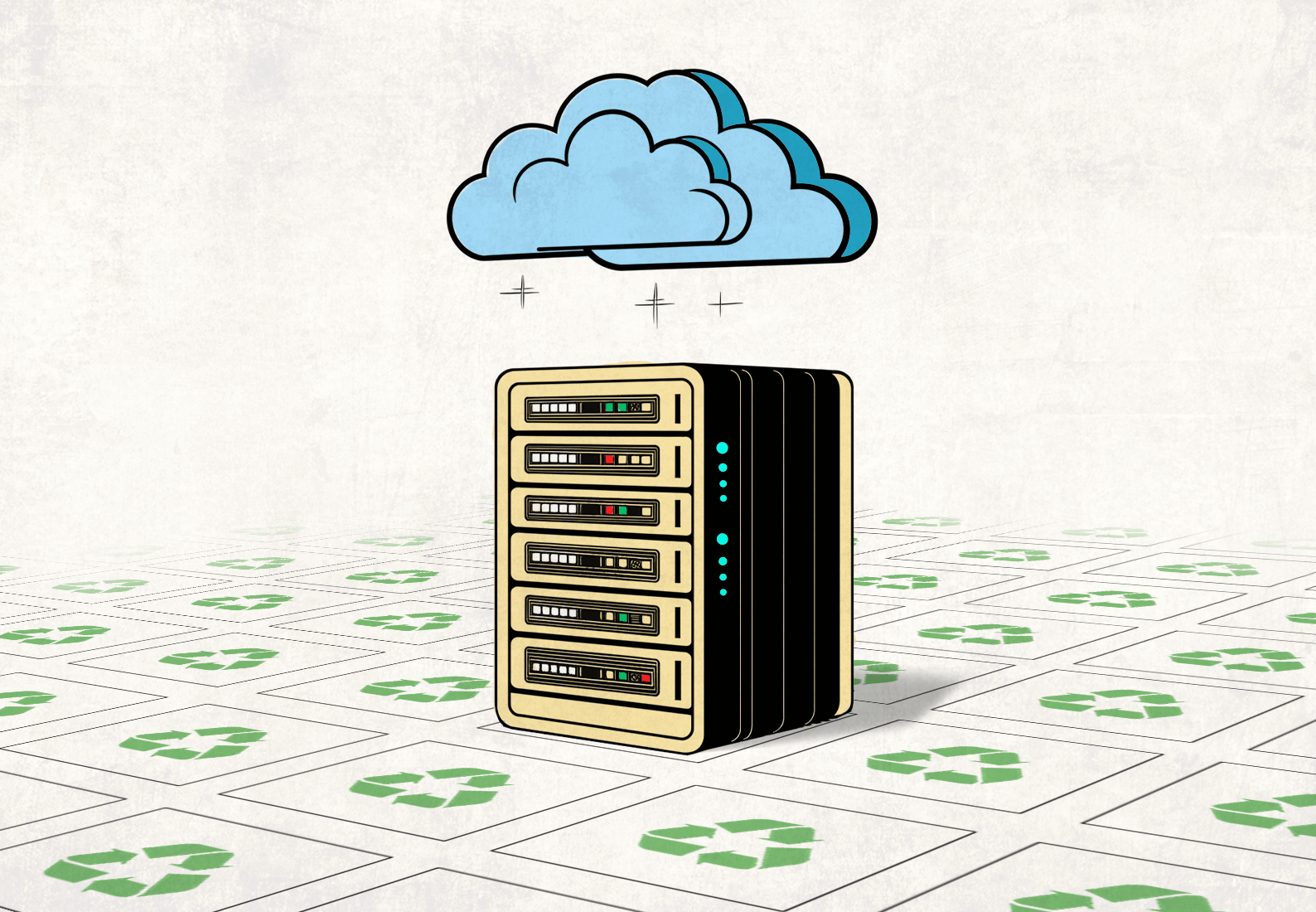At Schrödinger, our mission is clear: to improve human health and quality of life by transforming the way therapeutics and materials are discovered. That mission guides everything we do — including how we think about the efficiency of our technology.
Computation is the engine that drives our company. Our industry-leading computational platform is licensed by all of the top 20 biopharma companies globally, and leveraged by our own therapeutics group to advance proprietary and collaborative programs. Schrödinger uses private and public cloud computing heavily to drive scientific discovery. As head of IT, I want all the users of our platform to have the best tools for their work, and I want those tools to be as efficient as possible.
Computers are energy intensive, and the manufacturing process to produce computer parts can have a significant environmental footprint. Most computer hardware needs to be replaced every few years, and e-waste can be toxic to the environment. With all that in mind, what can a computationally-driven company do to minimize its impact?
First, it starts with what we buy. Schrödinger’s platform uses central processing units (CPUs) to manage workflows and complex logic, while leveraging NVIDIA GPUs to accelerate the heavy, parallel computations that power molecular simulations, quantum mechanics, and AI. A high-performance CPU might use around 250-500 watts of power, similar to a kitchen blender. A powerful GPU can use 400-1000 watts or more — about the same as a window air conditioner.
However, we can’t compare power alone. Energy — what you pay for on your bill at home — is measured as (power) x (time), typically in kilowatt-hours. At Schrödinger, what matters is the simulations completed for each kilowatt-hour, which is our measure of energy efficiency. Though GPUs use more power than CPUs, they complete simulation work 10-20 times faster than CPUs. Since energy is power multiplied by time, we use less energy running our simulations on GPUs than if we did using CPUs.
Today, we are utilizing NVIDIA L4 GPUs for the most recent expansion of our cluster. Just one of these modern GPUs can replace hundreds of traditional CPUs in terms of computational performance.
“Accelerated computing is at the heart of a sustainable, AI-forward healthcare future. Leveraging the energy efficiency of NVIDIA accelerated computing and AI, Schrödinger can advance the discovery of therapies to improve human health in the most environmentally friendly manner available.” – Janet Paulsen, Senior Alliance Manager, Drug Discovery, NVIDIA
Second, we are intentional about our technology partners. Google Cloud has been a close partner for many years, and they enable our cloud compute to run on carbon-neutral infrastructure. For our on-prem compute needs, we’ve partnered with Digital Realty, which ensures all our electricity is generated by renewable sources — not just balanced elsewhere by carbon offsets.
“Transforming therapeutic and materials discovery demands massive computational scale, which Schrödinger expertly harnesses. We are committed to providing the high-performance, scalable infrastructure required for this vital work, while ensuring it runs on a carbon-neutral cloud — empowering both scientific breakthroughs and the conscious computing Schrödinger champions.” – Shweta Maniar, Global Director, Healthcare & Life Sciences, Google Cloud
Finally, we ensure that whenever possible, our computers can have a second life. When a computer system no longer provides adequate value for our corporate use, turning it into e-waste is our absolute last resort. We have employee buy-back programs for laptops and desktops. This allows us to offer a system that still has some value for our employees, extending the useful life of the computer. For our large computational cluster, we’ve partnered with Computing for Humanity, an organization that helps aging supercomputers find new homes in academia and research labs. This donation provides an advantage to young researchers, powering the next generation of breakthroughs. To date, we’ve donated more than 1000 GPUs to academic labs and early-career researchers around the world.
“At Computing for Humanity, we believe that no scientific idea should be left unexplored due to lack of computing power. A sizable portion of academic research — ranging from 40 to 70 percent — is currently waiting in line for computing time and access to HPC resources. Schrödinger’s generous donation of GPUs helps us bridge the gap by transforming retired enterprise hardware into powerful tools for academic discovery. These end-of-life commercial machines, destined for landfills, are donated to Computing for Humanity, refurbished, and brought back to approximately 80 percent of their original capacity and donated for science. Together, we’re advancing sustainable science and ensuring the next generation of researchers has the computational resources they need to change the world.” – Elisabeth Sheppard, Executive Director, Computing for Humanity
Computation will always have an environmental footprint — but we believe it’s our responsibility to make it as light as possible. We are deeply committed to improving human health and quality of life and we are proud to find innovative ways to make a difference. By being intentional about our tools, our partners, and the paths we create for reuse, we’re building a future where innovation and sustainability go hand in hand.
Learn more about Schrödinger’s commitment to sustainability on our website: https://www.schrodinger.com/company/corporate-sustainability/









